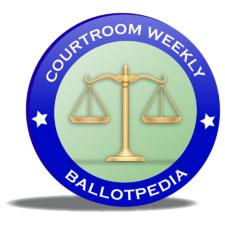| By Susan Lawrence
The Massachusetts Supreme Judicial Court issued a ruling on September 13, 2013, which upheld a jury award of $2.64 million in compensatory damages and $18 million in punitive damages against Toys R Us after a woman died from injuries caused when she slid head first down an inflatable pool slide which collapsed. The woman’s family sued the toy giant for importing the slide and selling it to U.S. consumers without testing the product to make sure it complied with federal safety regulations for swimming pool slides.
In 2006, Michael and Robin Aleo, along with their 15-month-old daughter, traveled to Andover, Massachusetts to visit Michael’s uncle, William Letsky. William’s wife, Sarah, had bought a Banzai Falls In-Ground Pool Slide and installed the slide next to their in-ground swimming pool. An electric fan kept the pool slide inflated. Robin was in the process of going down the slide face first when it suddenly collapsed as she reached the bottom. Her head hit the cement near the side of swimming pool before she slid into the pool. Robin’s husband Michael, William Letsky and another man pulled her from the pool. She was airlifted to a hospital in Boston, where doctors discovered she had a severed spinal cord. Doctors determined Robin would never move or breathe on her own again, and her family removed her from life support the day after the accident.
Massachusetts Superior Court Judge Howard J. Whitehead presided over the jury trial in 2008. The jury found Toys R Us was liable for negligence, breach of warranty, and wrongful death.[12] Toys R Us appealed the jury’s verdict to the Supreme Court. The toy company argued the trial court should not have excluded evidence regarding misuse of the slide and that the judge should not have allowed attorneys for plaintiff, Michael Aleo, to say the slide was 'illegal' in front of the jury. Lawyers for Toys R Us also argued the evidence did not show negligence or gross negligence and the award was so excessive it violated the company’s rights to due process.
Toys R Us imported the slide from China. The company contracted with a safety testing company who provided safety certificates to show the slide met federal regulations and toy industry standards in several areas. However no tests were done, or requested, by any parties to show the slide complied with federal safety regulations for swimming pool slides which have been in place since 1976.[13]
A federal appeals court ruled in 1978 the safety standards for swimming pools were legally justifiable.[14] In ruling on the appeal brought by Toys R Us, the Massachusetts court quoted a portion of the decades-old ruling and pointed out the regulations were created to help prevent deaths and injuries "including 'quadriplegia and paraplegia resulting from users (primarily adults using the swimming pool slide for the first time) sliding down the slide in a head first position and striking the bottom of the pool'[12]"
To comply with federal regulations in the U.S., swimming pool slides must undergo tests involving head first sliding and be able to support up to 350 pounds. A warning label from the Banzai Falls In-Ground Pool Slide and the instruction manual that came with the slide were submitted as evidence in the trial. Both note the slide can only support a weight of two hundred pounds and state sliding head first may result in injury or death.[12]
The Supreme Court found the jury’s finding of gross negligence on the part of Toys R Us was valid. The company did not carefully test the product to make sure it was safe. The company employed just one safety compliance officer to review approximately 4,000 safety compliance certificates per month.[12] A witness at the trial testified that
| “
|
...an indemnity provision in Toys R Us’s purported vendor agreement meant that, if Toys R Us lost money due to a product defect, it could try to recover the money from the Chinese vendor. Based on this testimony, the plaintiff permissibly argued, and the jury could have found, that Toys R Us was indifferent to the safety of the slide, because it believed it would not be financially liable for any defects.[4]
|
”
|
The court upheld the jury verdict against Toys R Us.
It was not until 2012 that Toys R Us and Walmart announced their companies were cooperating with U.S. Consumer Product Safety Commission to recall 21,000 Banzai In-Ground Pool Water Slides.[15] |





